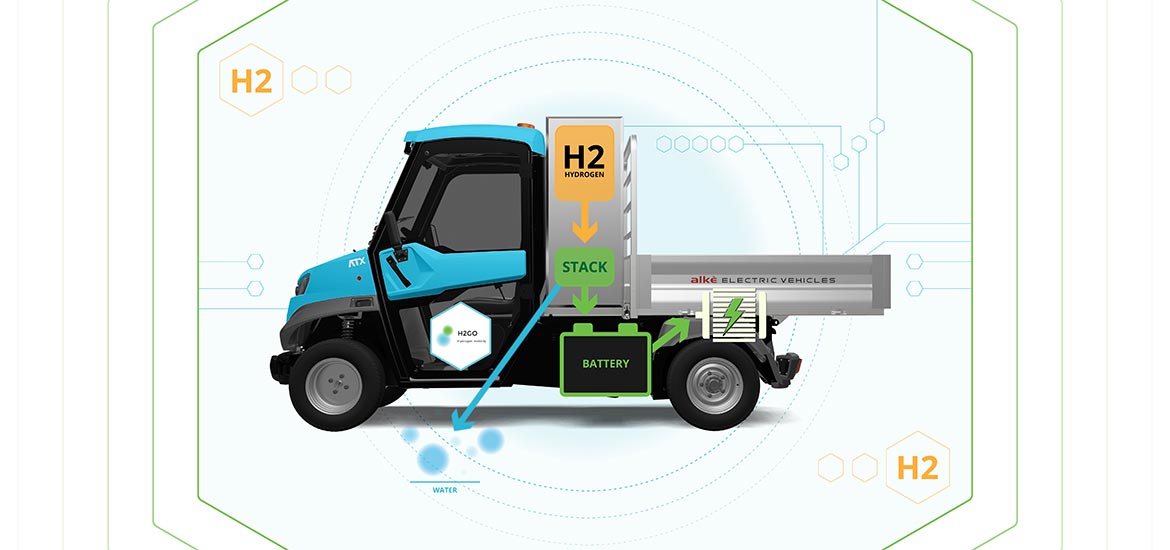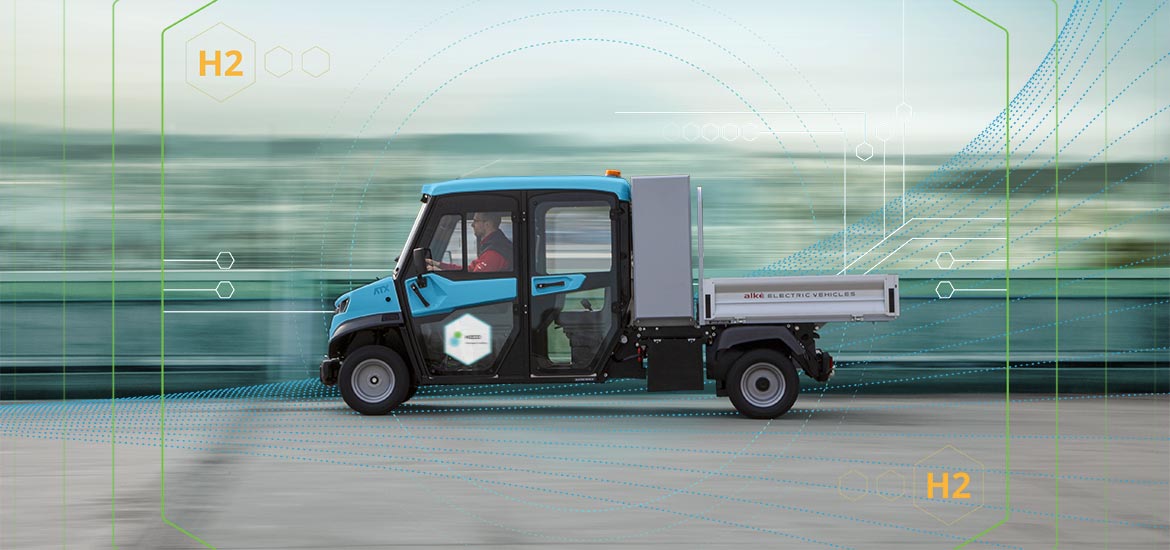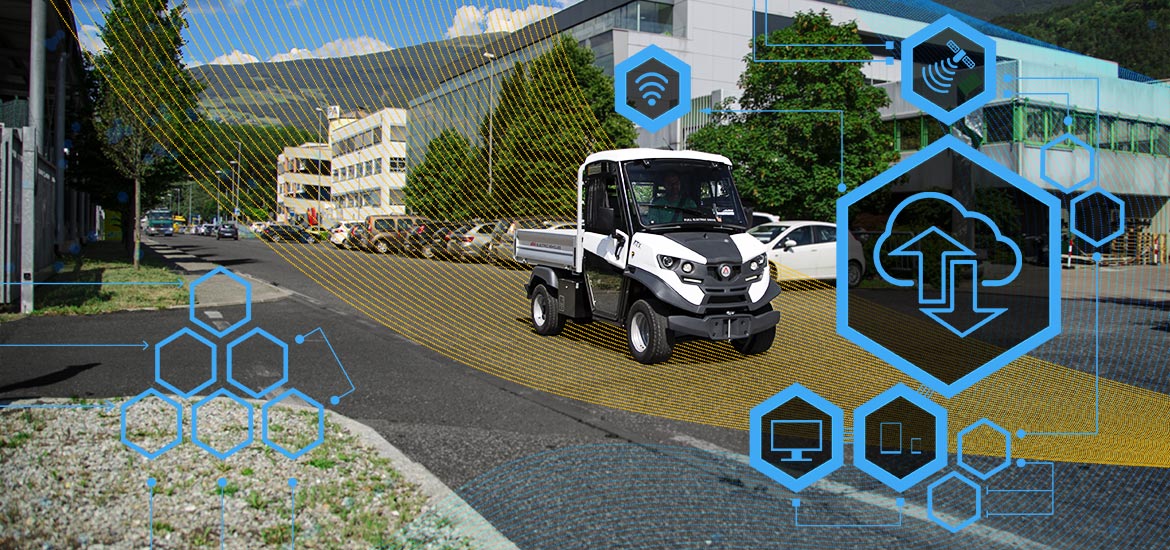
Hydrogen vehicles - H2GO
Hydrogen as a safe and reliable energy source for electric commercial vehicles. Alkè is industrial partner of the H2GO project, which brings together a European network of 6 highly specialised partners from different sectors. These include Bosch VHIT, Certh, Arco, Aess and also the city of Venice.
The main objectives of the H2GO project are:
- Providing an FCH technology stack to increase the autonomy of an electric vehicle
- Increasing the adoption of hydrogen vehicles
- Improving user acceptance of this new energy carrier
| Hydrogen vehicle glossary | Description |
| Stack | It can be compared to a genset that runs on hydrogen instead of petrol. This is the combustion cell assembly (FCH), the component in which the chemical reaction of splitting hydrogen into energy and water takes place. |
| FCH | Fuel Cell Hydrogen. They are hydrogen fuel cells. In a fuel cell, a chemical process drives an electrical one. A fuel cell uses a fuel, such as in this case hydrogen, reacts with it and thereby drives an electrical process. The energy produced by the fuel cell goes to power the vehicle's traction battery. |
| H2 | Chemical formula of hydrogen. A colourless, odourless, highly flammable gas. Hydrogen can be an energy source, an energy storage medium. |

How Alkè hydrogen vehicles work:
- Hydrogen (H2) stored in the tank is injected into the FCH Stack
- The Stack produces electricity and as waste water (H2O)
- The electrical energy received by the Stack is stored in the battery
- The battery powers the vehicle's electric motor
One of the main problems of electric commercial vehicles is the limited battery capacity that leads to so-called range anxiety. Fast charging and capacity increase are not sustainable and environmentally friendly solutions, as fast charging accelerates battery ageing, while capacity increase relies on a limited raw material in a battery value chain that is still unprepared for dismantling. Meanwhile, a new way of producing FCH and electrolyser opens up new hope for electric mobility. The consortium aims to retrofit a battery electric vehicle (BEV) into a hydrogen vehicle and demonstrate the benefits of hydrogen adoption in various urban applications where the BEV might face some challenges in terms of range, cost and limited charging infrastructure. The consortium involves: a research centre (CERTH), an Energy Agency (AESS), an OEM (Alkè Electric Vehicles), a TIER 1 (BOSCH VHIT), an SME specialised in FCH (ARCO) and the city of Venice, which is strongly committed to the hydrogen transition. Target groups are companies that provide services to municipalities for daily road maintenance, waste management, as well as energy transmission and distribution system operators.

Project H2GO Hydrogen vehicles - Main objective
H2GO aims to launch a new prototype that will help advance the idea of a new hydrogen electric vehicle for urban utilities. H2GO not only meets the demand for environmentally friendly vehicles with high capacities and long autonomy, but also aims to increase the willingness of OEMs (original equipment manufacturers) to embrace this technology transition. Through a series of interconnected activities, the project consortium wants to demonstrate the capability, starting from two products already on the market (the Alkè BEV vehicle and the ARCO Fuel Cell stack) to: improve the energy efficiency of FCH by installing an innovative fan; develop an easy-to-install autonomy extension system as an Alkè electric vehicle conversion kit. The demonstration city will be Venice involving its multiservice company VERITAS.

For more details on the H2GO project visit: www.h2go.site.
This project is co-funded by the European Union.
The responsibility for the information and opinions expressed on this webpage lies entirely with the authors.
The H2GO project consists of 6 project partners:

